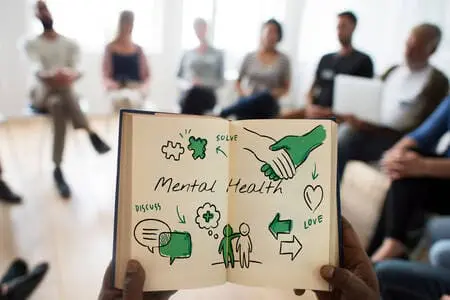
Compassion Classroom: Educator’s Training for Student Counseling
What is ‘Compassion Classroom’?
In today’s dynamic educational landscape, educators serve not only as instructors but also as frontline responders to the mental health needs of students. Recognizing the critical role educators play in supporting student well-being, training programs tailored to equip them with the necessary skills for student counseling and mental health support have become increasingly essential.
Educators often interact closely with students, witnessing firsthand the challenges they face, whether academic, social, or emotional. With the prevalence of mental health issues among youth on the rise, educators are uniquely positioned to identify signs of distress, offer support, and facilitate access to appropriate resources. However, without adequate training, they may feel ill-equipped to address mental health concerns effectively.

Key Features of the Training

Understanding Mental Health
Educators undergo comprehensive training to develop a nuanced understanding of various mental health conditions, their symptoms, and their impact on students’ academic performance and overall well-being.

Communication & Active Listening
Effective communication lies at the heart of student counseling. Training programs focus on honing educators’ listening skills, empathy, and ability to engage in sensitive conversations with students in a supportive & nonjudgmental manner.

Crisis Intervention
Educators learn strategies for managing crisis situations, such as suicidal ideation or acute emotional distress, including protocols for immediate response and referral to appropriate mental health professionals or support services.

Building Resilience
Educators are equipped with techniques to foster resilience and coping skills amongst students, promoting mental and emotional well-being proactively. And normalising conversations around mental health in their classrooms.

Collaboration & Referral
Training emphasizes the importance of collaboration with mental health professionals, school counselors, and other stakeholders to ensure comprehensive support for students how to make appropriate referrals.
How Compassion Classroom can benefit?


Early Intervention
Educators can detect early signs of mental health issues, intervening promptly to prevent crises and provide timely support for students.

Reduced Stigma
Capable of compassionately addressing concerns, aiding in the de-stigmatization of mental illness within the school community.

Improved Academic Outcomes
Cultivate learning environment to boost academic success, promoting high attendance, engagement, & achievement.

Personal & Professional Growth
Empower educators to grow personally and professionally, boosting their efficacy and fulfillment as mentors.
Donate to bring more helping hands
201K+
Chat Conversations
4.6
Average User Rating
15K+
Free Sessions
10K+
App Downloads
Measuring Impact
Healthcare professionals, educators, and social workers should receive training in recognizing the warning signs of suicide and conducting risk assessments.
Educator training for student counseling and mental health support is a cornerstone of comprehensive efforts to promote student well-being in educational settings. By investing in such training initiatives, schools and educational institutions not only fulfill their duty of care to students but also cultivate a culture of empathy, inclusion, and resilience. Ultimately, empowered educators serve as catalysts for positive change, nurturing the mental health of the next generation.

IN A CRISIS?
Connect with a volunteer Crisis Counselor now @ (+14695011130)
Free 24/7 support at your fingertips.


